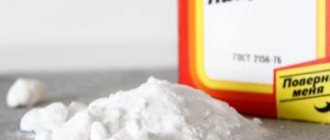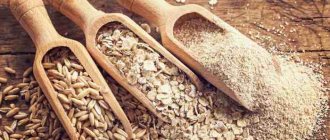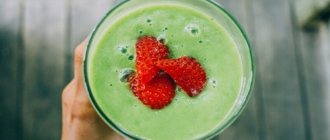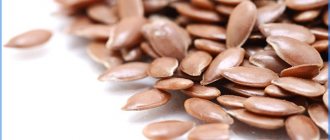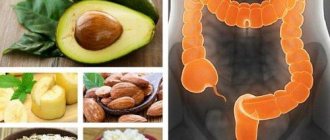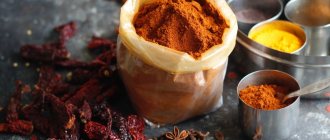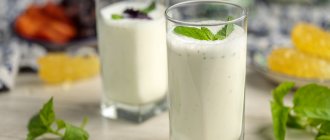The intestine is an organ of the digestive system in which the breakdown and absorption of incoming food occurs. It is also responsible for removing processed food and waste products. Under the influence of various factors and diseases, the functioning of the intestines is disrupted and it has to be improved. This may manifest itself as constipation, disorders and other, less obvious abnormalities.
You can find out how to improve the functioning of your intestines and stomach by consulting a doctor, but not everyone likes going to hospitals. We will tell you about drugs and folk remedies that improve the functioning of the digestive system, eliminate constipation and diarrhea, as well as other disorders.
List of the most useful products
Gut-healthy foods are usually plant-based, easy to prepare and delicious. Nutritionists have compiled a list of products recommended for systematic consumption:
- vegetables rich in fiber (pumpkin and beets have the highest amount of dietary fiber);
- various fruits and berries, bananas and plums are especially useful;
- natural juices;
- cereals and bran;
- reduced fat oil;
- chocolate containing little cocoa;
- dairy products;
- dried fruits, namely figs and prunes.
In addition to what exactly a person eats, how he does it is very important. Heavy dishes can only be consumed in combination with light ones, for example, meat with vegetable salad. You should try to eat at the same time, 5 times a day in small portions. It is also recommended to chew food thoroughly, in which case it will be digested faster and will not damage the mucous membrane.
Studies have shown that over 60% of people do not have half the required daily amount of fiber in their diet. As a result, immunity decreases, health deteriorates, and serious ailments begin associated with impaired functioning of the gastrointestinal tract.
To avoid these troubles, it is not necessary to consume large portions of bran for breakfast, lunch and dinner. It is enough to follow a few important recommendations:
- A portion of fresh juice on an empty stomach will put the tract into work and provide 50% of the daily fiber intake;
- It is advisable to add vegetables and fruits to every meal;
- We exclude baked goods made from white flour from food, replacing them with whole grain products (bread, bran bread, corn pasta, etc.);
- When choosing sweet additions to tea ceremonies, it is better to focus on cereal bars, which include nuts and fruits;
- We replace candies with an excessive amount of sugar in their composition with banana chips, candied carrots and dried fruits.
The best fermented milk products that are good for the stomach are those that were prepared independently at home according to the correct recipe. In a special yogurt maker, you can make first-class yogurt, kefir or curdled milk from purchased milk.
If you buy this product in a store, then you should pay close attention to the production time. The later the product was made, the better. The shelf life plays an important role: the more days kefir can be stored, the more chemicals are added to it. A fresh production date and a short sales period are two important indicators in determining the quality of fermented milk products.
Lactic acid, which these products are saturated with, cleanses the walls well, ridding them of bad microorganisms, bringing the same balance to the microflora.
The condition of the intestines will noticeably improve if you regularly eat cottage cheese and kefir for a week. Cheese cheese has proven itself well in this regard. This type of cheese is well suited for dietary nutrition. On the shelves today you can often find cottage cheese or yogurt with a variety of fruit fillings. You should not take them, since the fruit acid included in their composition neutralizes the healing properties of lactic acid.
Menu for constipation (Meal mode)
Poor nutrition in just six months can seriously harm the stomach and the entire body. Fat deposits, stones, and toxins take a gruelingly long time to be eliminated. In order not to create such troubles, it is better to take care of your health in advance by giving up irrational and excessive meals.
Here's what can insidiously follow an incorrect diet:
- A busy intestine takes longer to digest food, metabolism slows down, the feeling of fullness comes with a delay, a person overeats, everything repeats itself in a circle, it becomes a habit;
- Food stagnant in the intestines begins to rot, the microflora is disrupted, and immunity declines;
- Irritation and susceptibility to stress increase, the general condition of the body deteriorates, and performance decreases;
- Problems with stool of a systematic nature appear;
- The level of hemoglobin in the blood drops;
- The condition of the skin worsens;
- Adhesions and ulcers appear on the intestinal walls;
- Insomnia and anxiety appear.
A proper nutrition menu should include 25-30 g of dietary fiber daily. Rye bran bread is allowed 150 g, and wheat bread 200 g, butter 10 g and sugar 40 g. Do not forget about taking water with honey, juice with pulp, dried fruit compote, prune infusion or rosehip decoction on an empty stomach.
In case of chronic intestinal obstruction, nutrition is primarily aimed at regulating stool and unloading the intestines by eliminating hard-to-digest foods. The main requirement is to limit the amount of food you eat, avoiding overeating. Eat meals in small portions every 2 hours.
The second goal of the diet is to eliminate fermentation and putrefactive processes, so foods that cause gas formation (peas, raw white cabbage, legumes, whole milk, carbonated drinks) are excluded.
Moderate mechanical care is provided. Chemical irritants should be completely excluded (hot spices, hot seasonings). During the period of exacerbation, mechanical sparing should be maximum (Diets No. 4 or No. 4B). Fats and simple carbohydrates are limited. The norm of carbohydrates is 250 g (40-45 g are simple sugars), fats 60-70 g, protein 70-80 g (60% animal origin).
Vegetables and fruits should be consumed in moderation and boiled, since excess fiber can cause flatulence. The meat must be ground, you must include fermented milk products and follow the drinking regime. It is allowed to eat prunes, figs, dried apricots. Due to its high calcium content, cottage cheese can cause constipation, so it should be consumed with caution. Pasta is excluded, and from cereals - pearl barley, millet and barley.
| Breakfast |
|
| Lunch |
|
| Dinner |
|
| Dinner |
|
| For the night |
How to restore intestinal microflora?
The intestinal microflora is a certain combination of beneficial and harmful bacteria, and when exposed to certain factors, the number of pathogenic microorganisms increases, resulting in dysbacteriosis.
Experts consider the consumption of junk food or certain medications, such as antibiotics, as the main causes.
Symptoms accompanying imbalance are expressed in bloating and rumbling of the abdomen, diarrhea, etc. In order to get rid of them, you must adhere to the following rules:
- Follow a special diet and try to eat foods that are beneficial for the intestinal microflora.
- Take medications whose action is aimed at restoring the number of beneficial bacteria.
From all the variety, experts highlight the following products:
- 1 apple per day, eaten on an empty stomach;
- garlic;
- kefir, fermented baked milk, yogurt, cottage cheese, etc.;
- cheeses;
- raw vegetables and fruits.
It is not recommended to eat potatoes, flour products, sugar, cookies, marinades, canned goods, soda and milk. Honey can be used instead of sugar as a sweetener, sausage can be replaced with a piece of boiled meat, and bread should preferably be eaten dried.
It is also very important to drink water 30 minutes before or after meals.
List of the most useful products
Fiber promotes rapid bowel movement, as it mechanically acts on receptors and irritates the mucous membrane with the help of bile. These actions improve colon motility.
Useful foods for the intestines that include fiber:
- fruits, especially pears, apples, plums and bananas;
- vegetables such as beets, cabbage, carrots and pumpkin;
- dried fruits;
- bran.
As mentioned earlier, the main function of fiber is to mechanically cleanse the intestines of feces. This effect is achieved thanks to a complex composition that does not break down during digestion.
Doctors distinguish the following types of fiber:
- Pectin is very important for people suffering from diabetes because it reduces the absorption of sugar. Found in strawberries, apples, green peas, potatoes and cauliflower.
- Gum – lowers cholesterol, found in oatmeal, beans, dry peas, etc.
- Lingin – helps in the digestion process, activates bile acids. This substance can be found in radishes, eggplants, cereals and potatoes.
- Cellulose is an excellent tool for the prevention of intestinal disorders. Contained in wheat flour, grains, bran, cabbage, carrots, green peas, peppers, cucumbers and apples.
Nutritionists recommend consuming at least 30 grams of fiber per day.
Plant fiber is a faithful companion of the body, which is able to return the digestive system to normal. People with a lazy stomach and leading a sedentary lifestyle should consume fiber regularly.
It is not digested by the stomach, but is excreted from the body unchanged, while passing through the digestive system, cleansing it.
Since pregnant women and pensioners often experience problems with stool and are included in the main risk group for intestinal diseases, their daily dose should be 35 grams. dietary fiber. If you don’t like the bran, you can grind it and add it in this form to milkshakes and fruit purees. The norm is 3 tablespoons per day.
What natural drugs will improve bowel function?
Modern pharmacies offer numerous drugs that improve intestinal function in adults and children. Prebiotics and probiotics are considered the most effective and popular. They are relatively inexpensive, and Duphalac made in Germany is considered one of the proven products.
Among domestic analogues there are such drugs as:
- Colibacterin;
- Enterol;
- Bactistatin;
- Lactobacterin.
Enterol occupies a leading position, so doctors prescribe it most often to patients with digestive problems. It helps improve the functions of the gastrointestinal tract during diarrhea, after taking antibacterial drugs, during various malfunctions and in many other situations.
Linex, prescribed to patients of different ages, is quite effective. It works by increasing the acidity of the intestinal environment, thereby improving its activity.
Dairy products
It is best to ferment dairy products that are good for the intestines yourself and make yogurt from them (using a special yogurt maker), curdled milk or kefir. You can also purchase such products in a store, but in this case you should pay attention to the expiration date; the product must be fresh, and the storage time itself must be short.
Lactic acid contained in the products described above helps cleanse the intestines of harmful bacteria and putrefactive microorganisms. If you drink kefir and eat cottage cheese every day for a week, your intestinal health will improve significantly. Another product that helps normalize the digestive process is feta cheese. This cheese is not only tasty and healthy, but also well suited for dietary nutrition.
Very often on store shelves you can see yogurt or cottage cheese with some kind of fruit filling, unfortunately, such a product loses its properties. This is due to the fact that fruit acid neutralizes lactic acid.
Enemas to regulate the gastrointestinal tract
You can also improve your bowel function with enemas. This way you can remove toxins and impurities, but the right approach is important. It is necessary to introduce water at a comfortable temperature. The main thing is not to overuse the procedures, otherwise you can provoke dysbacteriosis. The fact is that enemas wash out not only harmful bacteria, but also beneficial microflora.
In addition to regular boiled water, you can use decoctions of eucalyptus, sage, chamomile, and calendula. All of them are brewed at the rate of 3 spoons per liter of water, and then be sure to filter.
Colon cleansing with diet
Products useful for cleansing the intestines consist of several blocks, each of which has its own effect:
- To remove bile from the body, you need to consume natural fats such as lard, yolk, sour cream or cream every day on an empty stomach. You can enhance their effect with cumin, coriander or fennel. Honey has the same effect, but to get the expected result you need to eat it for several weeks.
- Vegetable juices, kvass, whey and mineral water help to effectively cleanse the intestines.
- People who want to restore order in their body as soon as possible are recommended to create their own menu, including bran, millet, various cereals, mushrooms and nuts with a high protein content.
- Vegetables such as pumpkin, cabbage, beets or cucumbers are useful both raw and pickled.
- To speed up peristalsis, you need to include grapes, apricots, plums, melon, peaches and various dried fruits in your diet.
- Intestinal motility is activated by cold foods, for example, cold drinks, ice cream, okroshka, etc.
The diet is low-cost because it contains cereals, vegetables and fruits. Meat or fish dishes are present in the diet once a day. Weekly expenses are 1200-1300 rubles.
Gymnastics to improve intestinal functions
Oddly enough, special gymnastic exercises help improve intestinal function. They are all very simple, so you can do them at home. The set of exercises looks like this:
- Lying on your back, we make a “bicycle” - we move our legs, imitating the pedaling of a real bicycle.
- We lie on our backs, bend our knees and pull them towards our stomach, and then lower them back and straighten them. Perform with both legs at once or alternately.
- Lying on your back, touch your left knee to the floor to the right of your torso, and then touch your right knee to the left. The main thing is not to tear off your shoulders and shoulder blades.
- Kneeling down and resting on our palms, we squat on our buttocks - first on the left and then on the right side.
- Sitting straight on a chair, we pull in and stick out our stomach.
Each of these exercises must be performed 15-20 times. This gymnastics complex will not take more than 10 minutes, so you can even perform it 2-3 times a day.
What to eat
To know exactly which foods are good for your gut and which are not in your diet, you need to carefully study and review it. There is nothing complicated about this, because the formula for success is simple.
It is enough to include in the menu those components that are rich in fiber and can give the body from 30 to 80 grams. fiber. Overweight people can add more plant fiber to their meals in the early stages. Components of plant origin are rich in vitamins and essential nutrients. These elements cleanse the stomach and normalize its peristalsis.
The most popular and affordable healthy foods for the intestines today:
- Fruits and vegetables;
- Porridge from coarse cereals;
- Legumes;
- Greenery;
- Honey;
- Nuts;
- Rose hip.

All this can be easily found in every market. An important condition: the less time passed between their heat treatment and getting on the table, the more healing properties they retained. It is advisable to eat vegetables and fruits raw, then the degree of production of enzymes important for the body will increase, and the amount of vitamins that enter the blood will also increase.
This leads to the stabilization of metabolism, so it is almost impossible to meet an obese person who cares about the correctness of his diet and the correct functioning of the gastrointestinal tract (with the exception of hormonal pathologies). For those who suffer from skin diseases and acne, doctors recommend first of all to reconsider their approach to their diet. Pimples and blackheads will disappear after just a couple of months of this diet.
Knowing the list of healthy foods is half the battle; the second part is having regular meals and knowing how to prepare them correctly. You need to introduce more water into your updated diet menu to avoid problems with stool.
Constipation may occur when switching from one menu to another. Even with the transition from unhealthy food to proper nutrition, they have their place. With such a restructuring of the body, you can drink 1 tbsp on an empty stomach. l. vegetable oil. This will create a slippery film in the stomach, through which it will be easier for food to pass all the way.
At the same time, vitamins and healing substances will be less absorbed into the body. But you can forget about problems with stool. The body's adjustment to the new diet will be completed within a week, then the oil can be abandoned.
An important condition for proper nutrition: meals should consist of small portions and be repeated every 3 hours. Don’t eat at night and don’t overeat during the day, don’t wash down your food with water – these are a few more main rules for healthy eating.
Other medications that improve bowel function
In addition to natural drugs that improve the functioning of the intestines and stomach, pharmacies also sell other medicines. Doctors must prescribe them based on examination results, otherwise their effect may not be as expected. Popular medications for normalizing the gastrointestinal tract are:
- Exportal and Lactiol. They create a laxative effect, so they are usually prescribed for constipation. Their effect is similar to lactulose, but more stable.
- Duphalac and Normaze. This drug regulates intestinal motility and normalizes microflora.
- Mucofalk. Creates a mild effect when regulating the gastrointestinal tract.
- Linaclotide. It is a relatively safe product, with small dosages and no contraindications or side effects.
- Domperidone and Motilak. Regulates the functions of the stomach and other parts of the gastrointestinal tract. One of the most common prokinetics prescribed by doctors.
What foods have a laxative effect?
When considering healthy foods for the intestines, you cannot ignore various natural laxatives.
Constipation is caused by weakened peristalsis and is accompanied by unpleasant symptoms such as discomfort, bloating, and cutting pain. To get rid of this condition or prevent it altogether, you need to regularly consume the following foods:
- Plant fibers – found in large quantities in pumpkin, dried apricots and prunes. When consuming these products, the laxative effect occurs as quickly as possible.
- Surely many have heard about the salad called “Pastel”. It consists of coarsely grated carrots, beets, celery and cabbage. This vegetable mixture very quickly removes all waste and toxins from the body.
- You can also get rid of constipation by eating unpeeled apples, peaches, plums, bananas or dried fruits.
- Many traditional medicine experts believe that honey acts as a mild laxative.
- Onions are considered an excellent remedy for long-term and recurring constipation; they can be consumed in absolutely any form.
- A glass of cucumber pickle helps a lot.
With proper nutrition, intestinal problems disappear on their own, and taking any special medications becomes unnecessary. After all, it is much easier to prevent a disease than to treat it.
What causes intestinal dysfunction
Without understanding what affects the functioning of the intestines, it is impossible to understand how to normalize its functions. Why is peristalsis disrupted and disruptions occur in the body? There are quite a few reasons:
- passive lifestyle;
- lack of sports in a person’s life;
- abuse of high-calorie foods that take a long time to digest;
- age-related changes (in older people, bowel function slows down);
- genetic predisposition affecting bowel function;
- neoplasms in the digestive tract;
- consequences of surgical operations.
There are other reasons associated with various diseases and disorders in the human body. In most cases, the same remedies help, which are discussed in more detail below.
What to refuse
Harmful foods for the intestines and stomach include:
- fried pies and donuts - do not contain valuable substances, but are rich in unhealthy fats;
- instant food products - they contain many chemical additives - flavorings and taste enhancers, as well as starch. Such food provokes problems with the thyroid gland and excess weight gain;
- various snacks (chips, crackers, nuts) - irritate the intestines and impair the functioning of the entire gastrointestinal tract. Contain a large amount of saturated fats, which negatively affect health;
- fast food is the main enemy of the gastrointestinal tract. This food temporarily suppresses hunger, but it contains a lot of extra calories. Hot spices lead to ulcers, increased stomach acidity and pain;
- sweet soda - irritates the walls of the stomach, provokes increased gas formation, and worsens metabolism.
A special diet for the intestines helps cleanse the gastrointestinal tract and improves its functioning. Rich flour foods overload the intestines.
Eggs, legumes and meat dishes do not go well together. These products are difficult to process, so it is better not to eat them together. Meat food harmonizes well with vegetables. It is better to wash down your meal with dried fruit compote.
By following these rules, you can avoid taking medications and get rid of many gastrointestinal problems. In order for food to be better digested, it must be chewed thoroughly. You should not read or watch TV while eating. Then the stomach and intestines will work like clockwork.
Healthy foods for the intestines exclude those that can cause stagnation and rotting of food. We are accustomed to eating some of these foods since childhood, so giving them up because of their unhealthy properties may seem strange. And all because the advantages of these products lie below the surface, and for some reason few people know about their disadvantages.
It is necessary to exclude from the diet:
- Meat and meat products;
- Eggs, cottage cheese;
- Smoked, salty and spicy foods.
A healthy stomach will digest any of these bad foods without problems, but only if such food enters the body point-by-point and not on an ongoing basis. How to restore microflora
Microflora is a huge world of bacteria, in which both its useful and not so beneficial representatives live. When, as a result of certain factors, the number of harmful microorganisms increases, an imbalance occurs in the functioning of the tract - dysbacteriosis. Most often this occurs as a result of poor nutrition or taking antibiotics. The main symptoms of dysbiosis are indigestion, bloating, and rumbling.
The following recommendations will help normalize microflora:
- A diet of dishes that includes foods that are beneficial for the intestines and digestion;
- With the approval of a doctor, take medications aimed at increasing the number of beneficial bacteria;
- In the daily diet it is necessary to have fresh vegetables and fruits, fermented milk products;
- Minimizing the consumption of flour and confectionery products, potatoes, sugar, canned food, soda and milk;
- Instead of sugar - honey, sausage - boiled meat, bread - crackers:
- Drink water half an hour before and after meals.
What to do if you have constipation?
Healthy foods for the intestines can help the body cope with constipation and remove all waste and toxins in a timely manner. Gastroenterologists have developed a scheme that must be followed when stagnation occurs in the intestines:
- Drink at least 2-3 liters of water per day.
- Eat 100 grams of prunes daily.
- Include bran in the menu both raw and as part of cereals or baked goods.
- Eat as many greens, cabbage, beets and carrots as possible.
- Drink fermented milk products, such as kefir or fermented baked milk.
- Drinking coffee, chocolate or cocoa is allowed.
- Drinking a tablespoon of olive or castor oil on an empty stomach helps to cope with constipation.
- A decoction made from flax seeds also helps.
While treating constipation, you need to stop eating junk food such as chips, crackers, French fries, etc.
In case of a chronic course of the disease, it is best to completely avoid rice, smoked and fried foods. With the right diet, you can get rid of even the most obsessive problems with the digestive system.
Bowel massage
How else to improve the functioning of the small and large intestines, as well as normalize overall well-being? Massage can help you. With the right approach, it will eliminate flatulence, heartburn and constipation. The procedure does not have a negative effect, so it is allowed even for pregnant women and children. It is better to watch how such a massage is done by professionals once or twice. In general, you need to adhere to certain rules:
- all massage movements are performed smoothly and without excessive pressure;
- It is recommended to massage no earlier than 2-3 hours after eating;
- Before the session, the pressure is checked - it should be normal;
- the bladder should be empty;
- massage movements are carried out clockwise. But not the other way around.
The massage is performed while lying on your back and with your legs slightly bent. The movements are performed from the navel, gradually expanding the coverage. Make circular movements with your palms - nothing complicated, so you can do it without outside help.
What will help reduce gas formation
Flatulence is a common companion for patients with stomach problems. According to statistics, every third person on the planet suffers from bloating and gas.
These symptoms clearly indicate digestive problems. The solution is again in the fiber. But not all provisions are suitable for those who are tormented by flatulence. For example, legumes, although rich in plant fiber, still cause fermentation. You will also have to give up apples, grapes, corn, and zucchini, in any form. You’ll even have to forget about compotes for a while.
For flatulence, the menu should include:
- Barley, buckwheat, oatmeal and semolina porridge;
- Carrots, pumpkin, beets;
- Apricot, prunes;
- Flaxseed and oil.
If you have problems buying fresh fruits, you can replace them with dried ones, but they still have less healing properties. When choosing drinks, you should give preference to those that do not contain a lot of salt and sugar.
It is better to take juices without added sugar, and chicken and vegetable broths with a minimum amount of salt. Before purchasing mineral water, you should carefully study its composition on the label, since not all natural drinks are universal and have no contraindications.
Harmful products
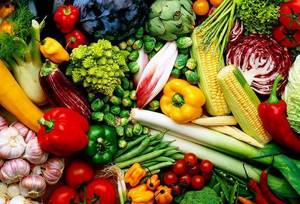
If you eat healthy foods, but do not exclude harmful ones, there will be no effect from proper nutrition. Very harmful:
- alcohol;
- fast food;
- fried and smoked;
- sweet sodas.
You cannot eat a large amount of flour products at one time, they greatly overload the intestines. It is also not recommended to combine meat, legumes and eggs. When eaten together, these foods take a very long time to digest and can cause inflammation in the intestines. If you have diarrhea, you should exclude milk, fresh fruits and vegetables from your diet, as described above.
Eating dry food can harm the body. It is also worth remembering that even the most beneficial foods for the stomach and intestines can be harmful if eaten in a spoiled state.
Good and bad foods for gut health
| Featured | Not recommended |
|
|
Bottom line
In conclusion, we can name the most beneficial foods for the intestines:
- Yogurt, kefir and other fermented milk products.
- Apples, plums and dried fruits.
- Bran and various grains.
- Cabbage, carrots, pumpkin, onions and herbs.
You also need to know how to properly prepare and combine healthy foods for the intestines:
- Instead of frying and smoking, it is best to resort to boiling, stewing, etc.
- A large amount of salt and hot seasonings can significantly worsen the condition of the body.
- You need to give up harmful foods.
- Give preference to lean varieties of meat and fish.
If you plan your menu correctly every day, problems with the intestines and stomach will cease to worry absolutely any person. The absence of discomfort will help you take a fresh look at life and make it much happier.

